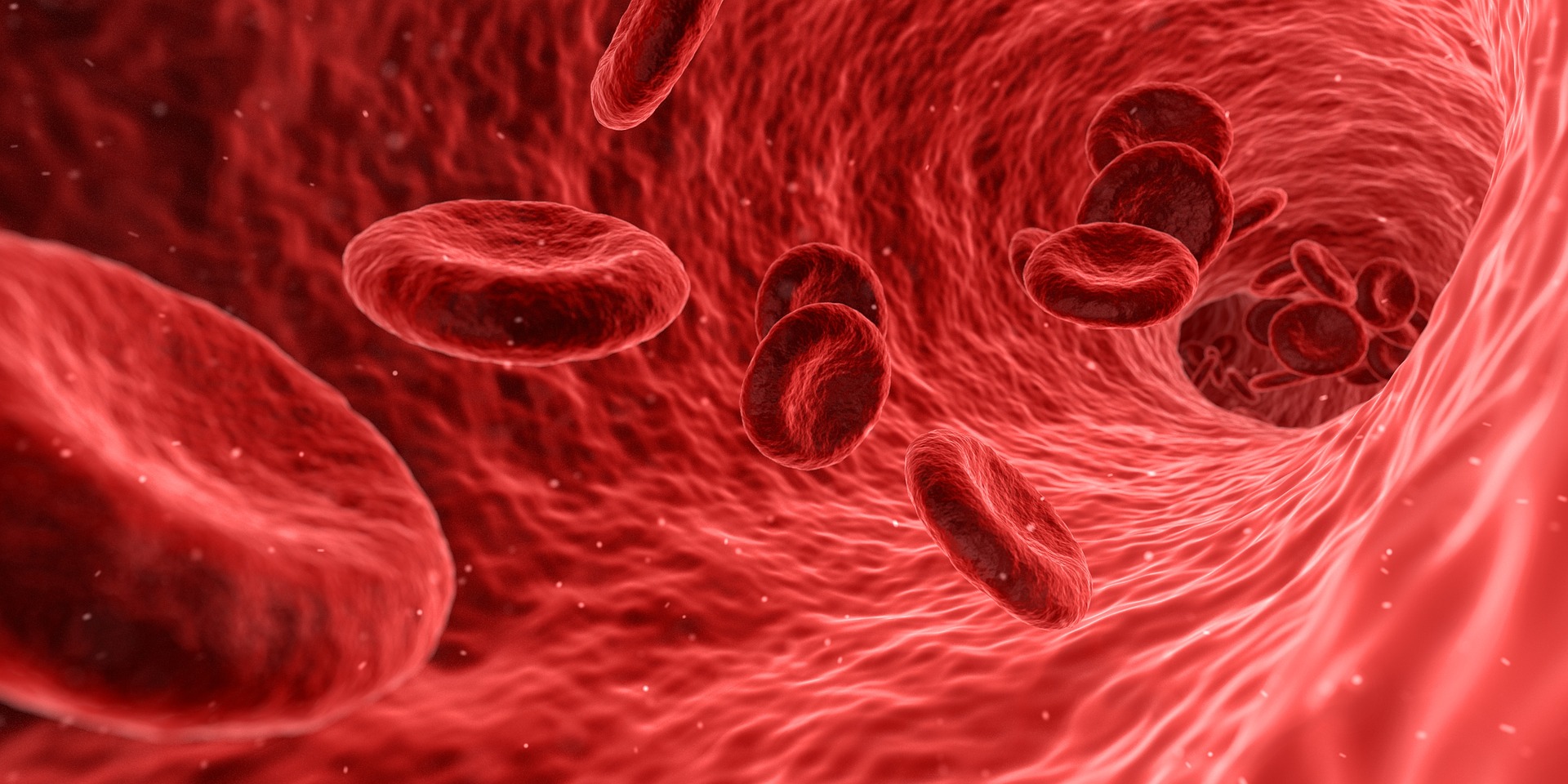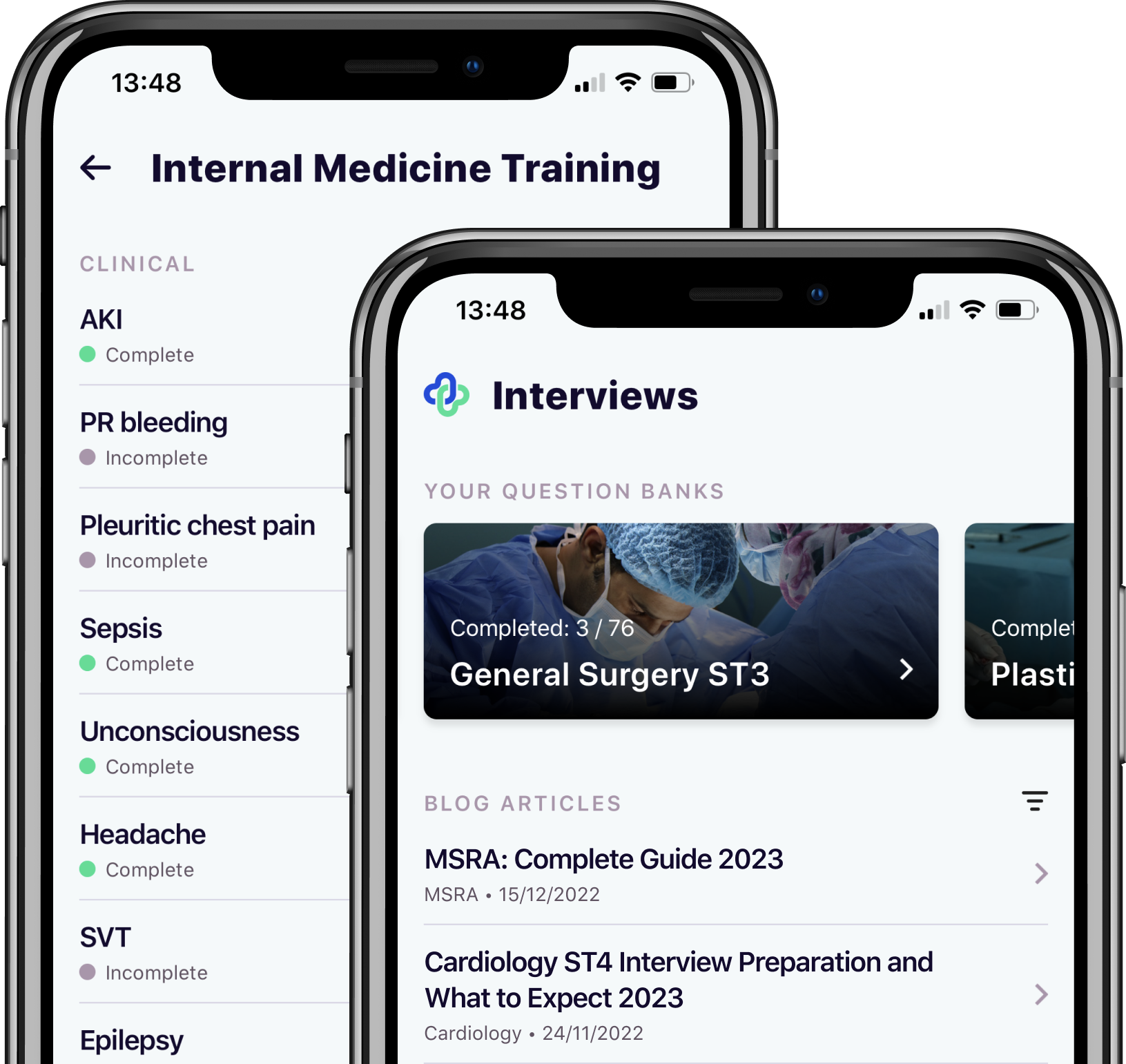
Haematology ST3 Interview Guide 2024
If you’re considering applying for ST3 Haematology, this guide will provide all the information you need to submit a successful application. We cover everything from the application and interview process, to the key dates and competition ratio, to make the process as easy as possible.
Haematology ST3 Competition ratios
In 2023, there were 199 applications for 92 available posts, giving a competition ratio of 2.16. This means there were just over 2 people applying for each post. This was actually a drop in comparison to previous years, as in 2021 and 2022, the competition ratio was 3.50 and 3.05, respectively. All the more reason to apply now if you’re considering Haematology ST3! But remember, dedicating time to your application and preparing well for interview is still essential.
Our Haematology ST3 Question Bank is coming soon! Sign up below for early access.
Haematology ST3 Application
To be eligible to apply for Haematology ST3, you must have completed the first two years of the internal medicine training (IMT) stage 1 programme or equivalent. Likewise, you must have either successfully completed the MRCP(UK) Part 1 at the time of application and MRCP(UK) Part 2 by offer date, be eligible for the specialist register in general internal medicine by the time of application or completed the Irish Basic Specialty Training in medicine and the MRCPI full diploma by offer date to be eligible to apply.
You can find more information and a full list of the eligibility criteria in the Haematology ST3 person specification 2024.
If you meet the eligibility criteria, submitting your application is the first step in the recruitment process. The 2024 recruitment dates are included below so you don’t miss the application deadline!
Haematology ST3 Application Scoring
Your application will be scored on the following two sections of the application form:
- Self-assessment – You’ll be awarded scores based on the options you choose in relation to your achievements and qualifications.
- Evidence – You’ll explain your selections by detailing your achievements and contributions.
Your evidence section and evidence documents will be used by assessors to verify your self-assessment scores.
Haematology ST3 Self Assessment
For the Haematology ST3 Self Assessment, there are 48 points available across the different domains, with a further 2 marks for evidence documents that are organised to a satisfactory standard. Note: if your evidence presentation is sufficiently poor, your application may not be shortlisted, regardless of your other scoring.
The Haematology ST3 Self Assessment covers the following areas:
| Assessment area | Maximum score available |
|---|---|
| Postgraduate degrees and qualifications | 4 |
| Additional achievements | 3 |
| MRCP(UK) | 8 |
| Presentations / posters | 7 |
| Publications | 8 |
| Teaching | 6 |
| Quality improvement | 5 |
| Leadership and management | 4 |
In addition to this, you’ll also be scored on your “commitment to specialty”. There will be 20 marks available from the combined scores of two assessors. This will be used for shortlisting purposes; making up almost 29% of the marks (20 out of a total 70 marks). However, unlike the verified self assessment score, this will not form part of the final score used for ranking and offers.
You can find more information about the Haematology ST3 self assessment and application scoring on the Physician Higher Specialty Training Recruitment website.
Boost your Haematology ST3 application by Training in Teaching
You can earn up to 6 self assessment points by teaching for 3 months or longer, or 3 points for having a master’s qualification in teaching. You might not have the time to do either of these before submitting your application. However, all you have to do for 1 point is attend a course like the Medibuddy Teach the Teacher course.
| Option | Score available | Notes |
|---|---|---|
| I have been awarded a master’s level teaching qualification | 3 | This could be full-time over one academic year or part-time over multiple years. |
| I have a higher qualification in teaching eg PG Cert or PG diploma | 2 | |
| I have had training in teaching methods which is below the level of a PG Cert or PG Diploma | 1 | This should be additional to any training received as part of your primary medical qualification |
| I have had no training in teaching methods | 0 |

Teach the Teacher Course by Medibuddy
This two-day CPD-accredited online course will earn you 12 CPD points on completion. It’s entirely flexible, so you can complete it in two days or multiple sessions over a longer period. On completion of the course, you’ll receive a certificate for your portfolio that is accredited for CCT, interviews and appraisals.
Find out moreHaematology ST3 Key Dates
The following is an overview of the Haematology ST3 2024 recruitment dates:
| Stage | Date |
|---|---|
| Advert appears | Wednesday 15 November 2023 by 5pm |
| Applications open | Thursday 16 November 2023 at 10am |
| Applications deadline | Thursday 7 December 2023 at 4pm |
| Evidence uploads | Monday 18 December 2023 – Friday 5 January 2024 |
| Interviews | Monday 11 – Wednesday 13 March 2024 |
| Initial offers released on | Thursday 18 April 2024 by 5pm |
| Holding deadline | Tuesday 23 April 2024 at 1pm |
| Upgrade Deadline | Wednesday 24 April 2024 at 1pm |
| Interview feedback release date | Thursday 25 April 2024 by 5pm |
| Posts commencing from date | Wednesday 7 August 2024 |
Haematology ST3 Interview Format
The Haematology ST3 interview is split into two stations, each with two questions, giving you a total of four questions to answer.
Each station will last 15 minutes, and there will be a short amount of time between them, so you can expect the interview to take around 40 minutes in total.
The following is an overview of the interview format and stations:
Station 1 Question 1 – Clinical Scenario
You will be given a clinical scenario to review, describing a hypothetical clinical situation in which you’re involved. You’ll then be required to answer questions relating to the scenario. The question will last approximately seven and a half minutes.
When reviewing the scenario and preparing for the questions, you should consider the following:
- The steps you would take
- The potential treatment options
- What further information you would gather
- How you would communicate with patients, family members, colleagues, etc., involved in the scenario
In addition to this, you should also consider any other factors you deem appropriate, using your experience and professional judgement.
Station 1 Question 2 – Professionalism & Governance
You will be given a short question (often a single sentence) to prompt a discussion on professionalism and governance. The interviewers will provide this verbally at the beginning of the question (not in advance). Again, the question will last approximately seven and a half minutes.
This is designed to assess your demonstration and understanding of professionalism and governance in a given situation. The principles of the GMC Good Medical Practice underpin the assessment of professionalism and governance; therefore, you should familiarise yourself with this to prepare.
Station 2 Question 1 – Suitability & Commitment
This section will focus on your commitment to training in the specialty. You’ll have the opportunity to expand on the information provided in your application form.
The question will last approximately seven and a half minutes.
Station 2 Question 2 – Presentation
This question requires you to give a 4-minute presentation, which you should prepare in advance. Your presentation must be on one of the following topics:
‘An interesting case I have been involved in’
OR
‘An interesting recent development / research finding in haematology’
When preparing your presentation, you should consider the following:
- Clarity & relevance – The topic should be relevant to haematology and, where possible, your application and you should present it with clarity.
- The four-minute time limit – You are limited to four minutes and the interviewers will stop you if you exceed this deadline.
- No resources allowed – You cannot share your screen or use PowerPoint or any other visual representation. Cue cards are permitted, but these must only be used as prompts for yourself.
Following your presentation, the interviewers will discuss it with you and ask follow-up questions. This will last an additional three and a half minutes, approximately.
Haematology ST3 Interview Scoring
For each question, there will be two interviewers assessing you. Each interviewer will score you independently, giving you two scores for each question and eight scores overall.
The interviews will score you against the following framework:
| Mark | Rating | Assessment |
|---|---|---|
| 1 | Poor | Not considered appointable |
| 2 | Area for concern | Performed below the level expected from a core level trainee applying to the specialty
Possibly unappointable, subject to discussion and performance in other areas |
| 3 | Satisfactory | Performed at the level expected of a core level trainee applying to the specialty
The candidate is suitable for a higher specialty training post |
| 4 | Good | Above average ability
The candidate is suitable for a higher specialty training post |
| 5 | Excellent | Highly performing trainee
The candidate is suitable for a higher specialty training post |
This means for each question, you will be given two scores out of five, totalling a score out of ten. For the four questions, you will receive a score between eight and forty. This sum of all eight scores is referred to as your ‘raw interview score’ (RIS).
To be deemed ‘appointable’, you must meet the following criteria:
- None of your eight interview scores can be 1/5
- No more than two of your eight interview scores can be 2/5
- Your RIS must be 24 or above
You can find more information about the interview scoring on the Physician Higher Specialty Training Recruitment website.
Good luck!

Take your subscriptions with you
Our mobile app allows you to access your interview and exam question banks wherever you are.




